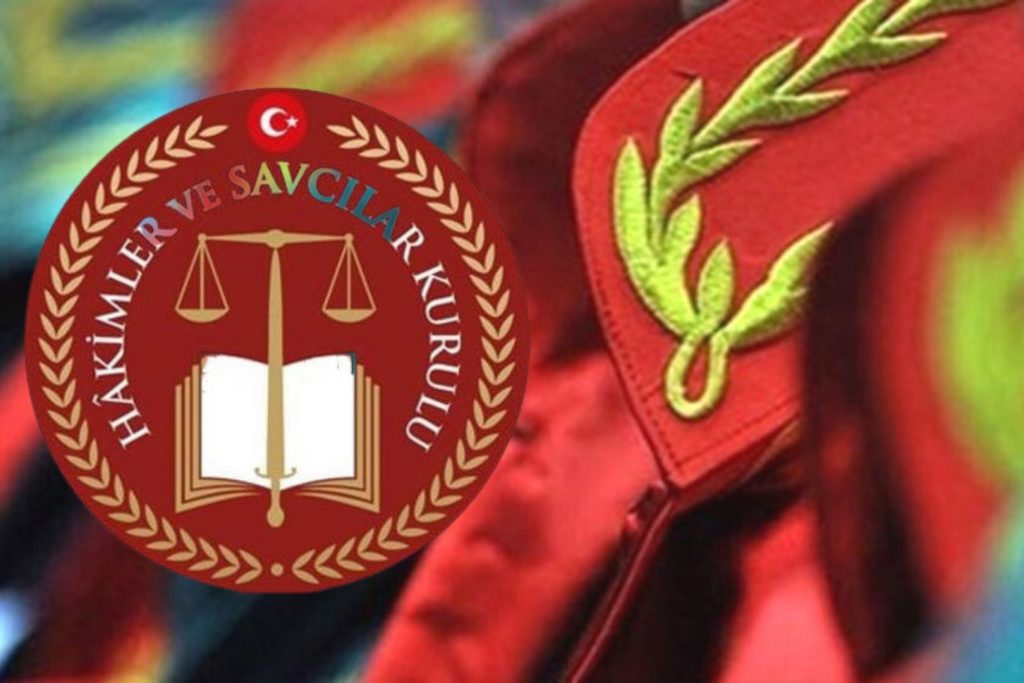A former judge who was removed from the bench after filing an appeal against the nomination of President Recep Tayyip Erdoğan as a presidential candidate in last year’s election failed to get his petition to the European Court of Human Rights (ECtHR) in a timely fashion due to lost mail, the Cumhuriyet daily reported.
Judge Ahmet Çakmak was removed by Turkey’s Board of Judges and Prosecutors (HSK) last summer after he, along with several opposition parties and other members of the legal community, filed a petition with the Supreme Election Board (YSK) against Erdoğan’s candidacy for what he said would be his third term in office and hence would contravene the constitution.
Presidents can serve for a renewable five-year term in Turkey.
When his petition was rejected by the YSK, Çakmak wanted to take his objection to Erdoğan’s candidacy to the ECtHR on the grounds that he had exhausted all domestic remedies, although technically, such applications do not fall within the jurisdiction of the European rights court.
He gave his petition addressed to the ECtHR, in which he explained the reasons why Erdoğan could not run again as a presidential candidate from a legal point of view, to the Postal and Telecommunications General Directorate (PTT) on March 31, one-and-a-half months before the presidential and parliamentary elections on May 14.
However, the parcel never reached Strasbourg. In his petition Çakmak wrote that he expected his petition to reach the ECtHR in 11 to 15 days, meaning the court would have sufficient time to decide before the elections. He said the Turkish government was violating the constitution through the renomination of Erdoğan, that the YSK is under the control of the government and therefore was unable make an objective decision regarding Erdoğan’s candidacy.
PTT officials informed Çakmak on May 29, one day after Erdoğan was victorious in a runoff election, that his petition had been lost in the mail. The PTT even paid Çakmak TL 500 in compensation for the lost mail.
The judge did not give up and sent the same petition to the ECtHR on June 20, this time successfully.
Cumhuriyet columnist Barış Terkoğlu, who wrote in his column on Thursday about Çakmak’s failed attempt to prevent Erdoğan’s presidential candidacy, said it was “thought-provoking” that the lost mail was found by PTT officials after Erdoğan’s victory and was delivered to the ECtHR in the second attempt.
The HSK, which had removed Çakmak from the bench, rejected an appeal from the judge against his removal during a meeting on Wednesday.
Çakmak was the subject of several investigations by the HSK, which many say were due to his attempt to challenge Erdoğan’s candidacy.
He was investigated for using an incorrect format in judicial correspondence, failing to arrive at a temporary assignment on time and objecting the use of an official vehicle for private use at a court in southeastern Turkey.
The judge was transferred twice as punishment, which according to the HSK law, required expulsion from the judiciary.
An outraged Çakmak expressed his lack of faith in Turkey’s judicial system on social media on February 18.
“Even the sun can freeze, but it is useless to seek justice in Turkey. Justice has died,” he wrote.
Erdoğan is accused of establishing one-man rule in the country, particularly after a coup attempt in 2016, following which he launched a massive crackdown on non-loyalist citizens and the country’s subsequent transition to the presidential system of governance, which granted him vast powers.
Many say there is no longer a separation of powers in the country and that members of the judiciary are under the absolute control of the government and cannot make judgments based on law.
Confusion caused by a change in the system of governance led to the objections against Erdoğan’s candidacy before the May elections.
Erdoğan was first elected president for a seven-year non-renewable term in 2014 by a direct vote under a parliamentary system. Turkey switched to the presidential system of governance with a referendum in 2017 and held snap presidential and parliamentary elections in 2018, when Erdoğan was elected president again. Under the presidential system, a person can be elected president for a five-year renewable term if the election is held as scheduled.

